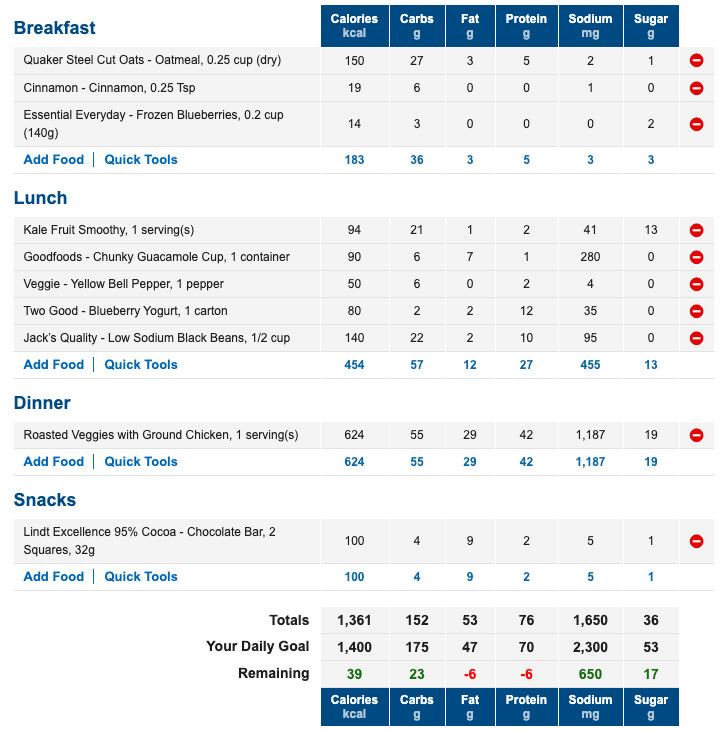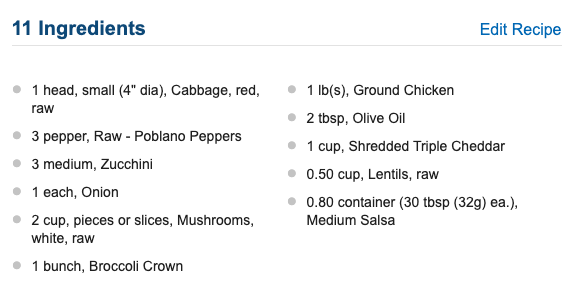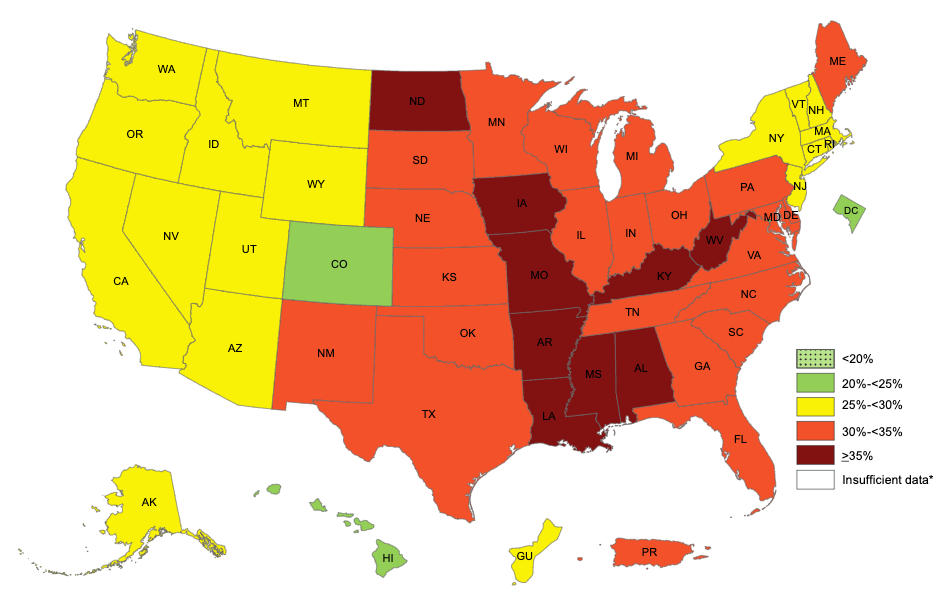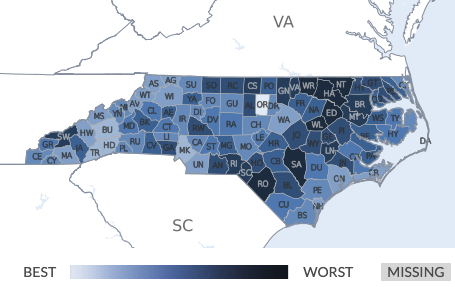Let’s be very clear – I am not a nutritional science expert. However, I am a person who has been looking for the “magic diet” since I was a chubby 12 year old going through puberty. I am also a person who has been trained to sift through the scientific literature, assess the credibility of a source, and pull out the digestible information (pun intended). I’m always learning new things and evolving my decisions, but I believe I’ve reached diet guidelines that have helped me tremendously, and I hope they’ll help others.
Before I dump the information I’ve learned, I want to explain why this is important to me. My home state of WV is one of nine U.S. states with a >35% obesity rate. It wasn’t until I moved to Chapel Hill, NC that I realized how incorrectly informed I was about what a healthy diet meant. I thought anything labeled “fat free” was a food I could eat all the time. I thought ordering a wrap instead of a sandwich would help me lose weight. I thought a chewy bar and gatorade were snacks for healthy, active people. I thought diets were something you did for a couple months to lose weight, and then you’d go back to your regular life as a skinnier, happier version of your former self. I thought ordering a yogurt parfait at McDonalds was the pinnacle of health and self-control. I thought a healthy diet meant steamed broccoli and an unseasoned chicken breast.
Moving out of WV to a county with a 20% obesity rate exposed all of these misconceptions I had the longer I was there and witnessed the diet choices the community around me was making. I started looking at the nutrition facts of my food more closely. Why did I think a wrap was healthier if it has more calories than two pieces of bread? Why is there sugar added to literally everything I buy? Why did I think avoiding fat food but eating foods high in sugar was a healthy diet? The more I paid attention, the angrier I became. Why was the only source of information my community had about proper nutrition from a questionable food pyramid and TV commercials? These ads told us eating Special K for every meal was a legitimate way to stay thin and that Hamburger Helper was an affordable, nutritious dinner for your family. Don’t get me started on how angry this Reddi-wip commercial makes me. What makes me the angriest and saddest is when I see someone I love trying so hard to improve their health by following this misguided information we were fed by the businesses who profited rather than legitimate nutritional research. The only people who have the privilege of learning how to best feed themselves and their families are those who can afford a nutritionist or have the time and ability to distill the research? Nothing about this adds up, I have strong feelings about it, but I’ll move on.
Here are my golden rules I use to guide my decisions about what I eat:
- Working out is necessary for a healthy body, but your diet is how you lose weight. I went a long time thinking that if I just went to the gym every day, I could eat whatever I wanted. This is not true. See reading material 1, 2, and 3, though I’m sure there are better sources out there. In fact, I’ve found that when my eating has gone off the rails, it’s way too overwhelming for me to work on my eating habit AND my exercise habit at the same time. I end up adapting neither. Everyone should work towards a goal of regular exercise, but that is a related though separate conversation to dieting and losing weight.
- The best diet is one you will keep. I got burned many times by drinking SlimFasts as meal replacements or forcing kale salad down for a couple months, just to bounce back and put on double the weight I lost. Is this new diet of yours one you’d want to eat for a long period of time? (Insert cliché about lifestyle vs. diet). This is a personal decision everyone has to make. For me, I know I value quantity over quality (small snacks throughout the day rather than big meals has also given me so much energy, but I can save that gushing for another post). I’m very strict about what I eat during the week so I can indulge (mindfully) for a meal or two over the weekend. Eating mostly the same foods every day changing only a few ingredients every week is enough variety for me. My lunches need to be as close to grab-and-go as possible, otherwise I’ll stop preparing them and start eating out. A life without cheese is no life at all. What components do you need to look forward to eating your meals?
- A food diary is a necessary step for calibrating your diet. I have lived by MyFitnessPal for a decade now. I use it to create a mock day, then I see what I need to tweak to keep everything in check. Don’t forget to look at the nutrition page!!! This tells you how you’ve done on macros and your nutrients (it’s so difficult to get enough calcium and iron!). Nutritional research is notoriously difficult to draw definitive conclusions from, and the MyFitnessPal app is certainly not the nutrition bible. However, I think it’s really helpful to realize what you thought was a healthy day of eating was actually giving you double the recommended sugar and salt, and not enough fiber or protein to keep you full. Often I’ll try to log every day for a week or so and then won’t use it again until I feel like I need to recalibrate.
- Avoid processed foods. The further away a food is from its original state, the more the ratios of its original nutritional content are skewed. For example, drinking apple juice rather than an apple gives you all of the sugar, but only a fraction of the fiber that would’ve satiated your appetite. The research has found that processed foods generally have this effect – we’ll eat more of them before we’re satisfied. Not only that, but processed meat has been pretty seriously linked to cancer. It takes much less time for me to find an appropriate diet that is in the correct nutritional ranges if I minimize processed foods.
- Vegetables, vegetables, vegetables – eat them often. The majority of my meals are just vegetables. I mean actual vegetables, not a bunch of romaine with a dressing that won’t fill anybody up. Roast them, bake them, steam them, put them in a smoothie, eat them raw. Eat a variety. You don’t need a time-consuming, fad cookbook to show you how to make healthy meals. Step 1 – Buy vegetables. Step 2 – Eat them. None of this is new information, but somehow adopting this made everything else fall into place for me. Applying a little salt, fat, acid, heat mentality makes vegetables very tasty with minimal effort. I also always try to have a sweeter vegetable like onions as well. My fat and acid change depending on the cuisine I’m in the mood for (e.g. Mexican – cheese, salsa. Italian – olive oil, a wine-based vinegar. Thai – coconut, rice vinegar.) It takes an incredibly small amount of salt to bring out all of these flavors, so use it to avoid the bland vegetables we usually associate with eating healthy.
- Fruits and vegetables are not created equal. Fruits have a ton of sugar. They’re tasty and you can and should eat them every day. You should not eat them as often as vegetables.
- Red meat is a sometimes food. There’s quite a bit in the literature about the health concerns associated with red meat. I save red meat for when I go out to eat, which means I usually end up eating it maybe 1-4 times a month.
- Added sugar is an almost never food. There is absolutely no nutritional benefit to adding refined sugar to your foods. It is insane how they squeeze this into so many of our staples. It’s impossible to avoid completely when eating out, but I work hard to keep my weekdays refined sugar-free. I don’t feel comfortable with artificial sweeteners because they fall under the highly processed category for me, but the data isn’t conclusive, so that’s a personal decision.
- Animal products are generally a sometimes food. I fully support a plant-based diet for helping our planet and many of the health benefits. However, I personally choose to adapt a “mindful meat-eater” approach. I’m still working to reduce my animal products, but I’m generally happy with where I’m at.
- Moderation is key. I don’t think added sugar or animal fats will kill you in the same way I don’t think carbs killed us during the Atkins craze. When it comes down to it, I think a red, yellow, green light strategy is best, which is basically the idea behind the Noom app developed by behavioral psychologists. For example, vegetables are a green food, no added sugar nut butters are a yellow food, and red meat is a red food.
Here is what a regular weekday looks like for me courtesy of MyFitnessPal:

My kale fruit smoothie is a blender full of kale (no stems), a cup of almond milk, 1 banana, 1 apple, a can of crushed pineapple in 100% juice blended then split into 5 portions. I freeze it in mason jars then let it thaw before I eat it every day. I vary my roasted veggies weekly to keep things from getting boring, but here’s a regular weeknight dinner for me that I prep on Mondays and eat throughout the week.

On an average day, this is my nutrition info.

My weekend breakfasts are usually turkey sausage, a scrambled egg, and a Van’s whole grain waffle. My weekend lunches are normally a tuna or smoked salmon packet with hummus and vegetables. We like to make pasta with roasted veggies and turkey or chicken for dinner on Sundays, and then Friday and Saturday dinner I don’t calorie count, but try to mindfully indulge.
My diet is constantly evolving as my lifestyle changes and I learn more information, and these guidelines have resulted from years of trial and error. I am far from perfect – I literally just ate half of a donut as I started writing this! However, when I slip up now, I at least feel like I’m making an informed decision. I’m no longer reaching for the sugary granola thinking this is as healthy as I can get. While my guidelines may not be the guidelines you choose to follow, I hope this highlights the importance of questioning what you assume is healthy and making informed decisions about what we put into our bodies.


